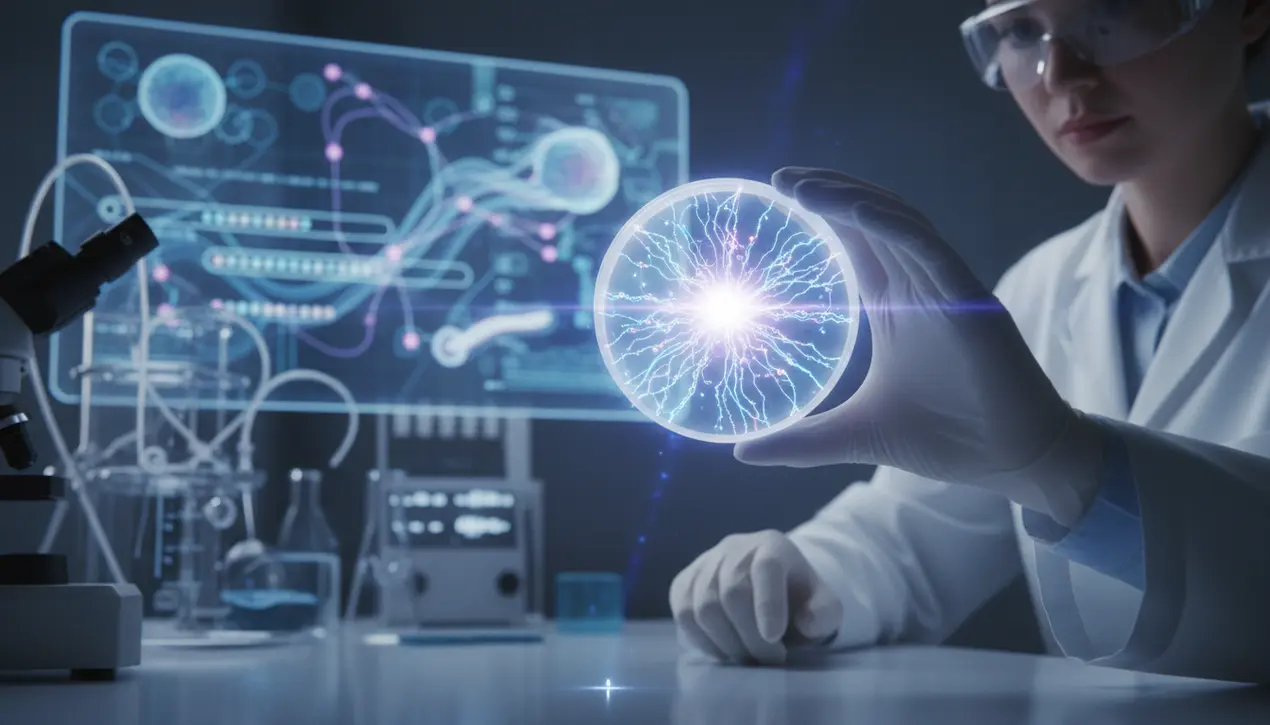
Scienceneuroscience
Scientists Engineer Adaptive Bacterial Nanopores Exhibiting Brain-like Learning
KE
Kevin White
3 hours ago7 min read3 comments
In a breakthrough that merges the frontiers of biology and computing, researchers at the École Polytechnique Fédérale de Lausanne (EPFL) have decoded the complex behavior of biological nanopores, uncovering a sophisticated mechanism that operates on principles analogous to neural learning. These molecular-scale pores, utilized in various biotechnologies, have historically displayed unpredictable electrical shifts—a phenomenon known as rectification and gating.The EPFL team adopted a novel, engineering-based strategy, moving beyond observation to construct synthetic versions of the bacterial aerolysin pore. Their investigation revealed that dynamic internal electrical charges within the pore's structure interact with passing ions, creating a complex electrochemical dialogue.This interaction governs ionic flow and establishes a memory-like effect, far more advanced than a simple binary switch. This discovery heralds the dawn of 'iontronics,' a field where information is processed using ions in fluid environments, mirroring the operational language of the human nervous system.The scientists advanced their work by engineering nanopores capable of synaptic plasticity—the fundamental process underlying learning and memory in the brain. This paves the way for bio-hybrid systems that leverage these adaptive nanopores for highly efficient, neuromorphic computing.Such systems could process sensory information or regulate intricate metabolic pathways with an efficiency unattainable by conventional binary logic. This represents a paradigm shift in protein engineering, pointing toward the development of 'wetware' processors that can interface seamlessly with biological tissues.The potential applications are vast, spanning next-generation neuroprosthetics, intelligent diagnostic tools, and smart drug delivery systems that learn and adapt to an individual's physiological state. The implications challenge our reliance on silicon-based computing and suggest a future where the most advanced machines are intrinsically biological.
#featured
#bacterial nanopores
#brain-like learning
#bio-inspired computing
#ion-based processors
#EPFL research
Stay Informed. Act Smarter.
Get weekly highlights, major headlines, and expert insights — then put your knowledge to work in our live prediction markets.
Related News
© 2025 Outpoll Service LTD. All rights reserved.
